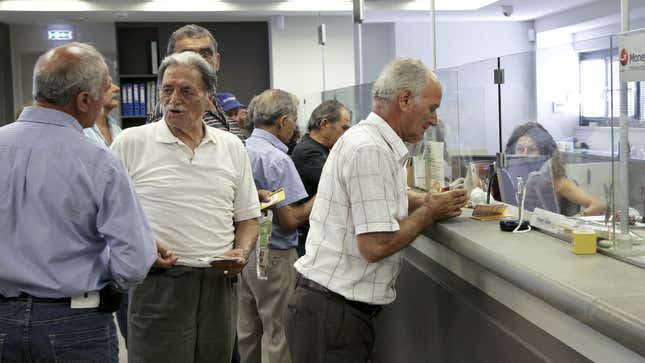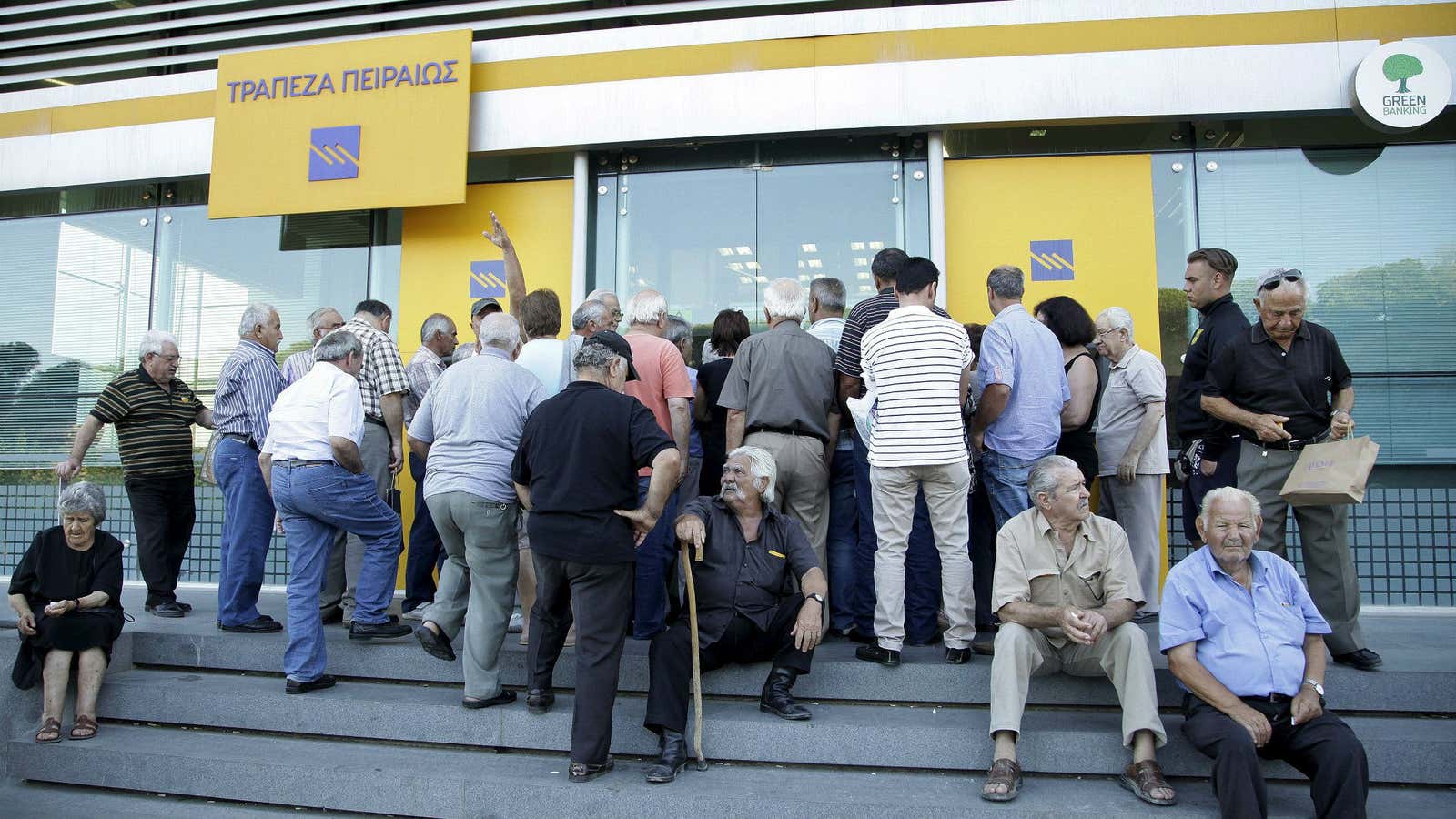Greek banks were closed for three weeks to conserve cash after a contentious referendum on austerity measures brought the country’s bailout negotiations to a halt. But now that the outlines of a new deal are in place, the immediate crisis has been averted, Athens is back in its creditors’ good graces, and the banks can reopen—even if there isn’t much that customers can do there besides enjoy the air conditioning.
It gets hot in Greece this time of year, so the value of having more places where locals can go to cool off should not be underestimated. But the range of services still available at banks are quite limited. Strict caps on the amount of cash that customers can withdraw, and a ban on foreign transfers, remain in place.

The only real change is that the daily withdrawal limit of €60 ($65) has been replaced with a weekly limit of €420, which means less-frequent queueing to get the same amount of cash. Customers can also now get to what they’ve squirreled away in safe deposit boxes.
The bank closures have cost Greece’s economy dearly; the prospects for reducing or removing capital controls will depend on how quickly Athens can agree to a new bailout program. Creditors reckon that Greek banks need recapitalizing to the tune of up to €25 billion to get back on track.
In the meantime, reopening the banks will boost public morale more than pocketbooks. Greeks have been draining their accounts as the country’s crisis has worsened, and winning that confidence back will take time. Tellers probably won’t see many customers coming in to make big deposits any time soon.
Later this week, the Greek parliament will consider another set of measures that creditors demand it passes before bailout talks can begin again in earnest. Included is the adoption of a somewhat arcane bit of banking legislation that harmonizes how EU countries deal with troubled banks. Among other things, the directive makes it easier for officials to impose losses on the bondholders and depositors of insolvent banks.
There are less draconian options for fixing Greece’s banks, but it’s hard to say if these would be effective. We won’t know exactly how bad of shape the banks are in until a new round of stress tests are conducted by regulators—even then, there’s no guarantee we’ll get an accurate picture, as these tests have been known fall into the realm of political theater.
Meanwhile, deposits below €100,000 are guaranteed by EU law, but Moody’s estimates that some €20-25 billion of savings in Greek banks are above this limit, leaving them at risk of a dreaded “haircut.” That the banks are reopened is of little comfort to customers whose account balances exceed the covered amount, as it only allows them to get a little closer to the money they may never see again.




